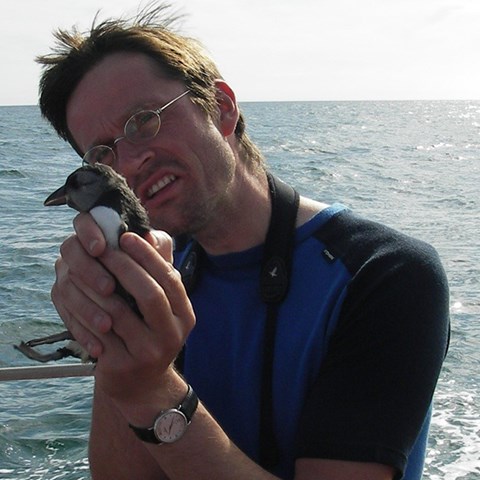Facts
City: Uppsala
Location: Tammsalen, Ecology Centre
Tammsalen, Ecology Centre, Uppsala

Digital technology is changing nature conservation in increasingly profound ways, says René van der Wal, SLU´s new professor of Citizen Science. Welcome to this Tamm seminar!
The impact and its significance can be captured by the concept of ‘digital conservation’, which comprises five pivotal dimensions: data on nature, data on people, data integration and analysis, communication and experience, and participatory governance. Digital conservation projects and initiatives are booming.
This rapid growth is linked in with optimism amongst conservationists about the promise that digital conservation holds: more data, larger audiences, improved surveillance, and more efficient management. Still, compared to digital technology studies in many other scientific disciplines, research into the operation and precise impacts of digital applications on nature conservation is in its infancy. A striking feature of numerous digital conservation endeavours is the balancing of two key dimensions, namely ‘data on nature’ and ‘communication and experience’.
Such balancing of research and outreach is omnipresent but arguably clearest in the vast array of nature-related ‘citizen science’ projects which have blossomed over the last decades, and through which members of the public are invited to engage with and contribute to scientific developments in the nature conservation realm. Because of the potency and appeal of many digital technologies, trade-offs remain often unidentified and unaddressed, leading to the delivery of either great science and display of technical competence or valuable outreach without this being the aspiration.
New digital technologies can be highly enabling and progressive. Yet, reflection upon the need of new technologies, investigation of their wider societal as well as environmental impacts and appreciation of both the underlying ultimate and proximate drivers is required for digital innovation in nature conservation to be sensibly guided.
René van der Wal is a Professor of Environmental Citizen Science at SLU's Department of Ecology,
Uppsala (rene.van.der.wal@slu.se).
He is an ecologist with a strong interest in nature conservation and people's roles in the ecology of a place, and works frequently in partnership with social scientists and computer scientists, studying and developing innovations in citizen science. During his talk, he will show some of the advances made in technologies in Nature Conservation such as automated feedback, and by so doing reveal insights on birds, bumblebees and people observing those species.